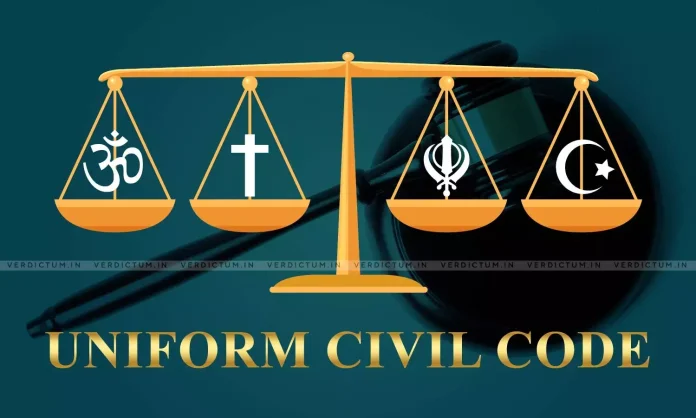Ahmedabad – The Gujarat government’s recent push to implement the Uniform Civil Code (UCC) has sparked widespread concern, particularly among the Muslim community. While the government projects the move as a stride toward equality, critics argue that it threatens the religious and cultural identity of India’s largest minority.
The controversy intensified after a drafting committee was formed under retired Supreme Court judge Ranjana Desai, who had previously led the UCC initiative in Uttarakhand. That draft, critics say, lacked proper consultation and contained multiple flaws that disproportionately affected Muslims and other cultural groups. Alarmingly, the Gujarat panel also excludes any Muslim or minority representation, raising serious doubts about the inclusivity and intentions of the process. Simultaneously, tribal communities have been exempted from the UCC—prompting accusations of political selectiveness.
The UCC debate has deep roots. During the Constitution’s framing, the idea was discussed extensively. The origin of the UCC can be traced to the 1937 Shariat Application Act, which empowered Muslim women with inheritance rights. Dr. B.R. Ambedkar had supported a voluntary UCC, asserting that Article 44 only encouraged the State to strive for a UCC, without mandating its imposition. He emphasized that personal laws should remain optional, much like the Shariat Act of 1937.
Article 44 is a Directive Principle, not legally binding. In contrast, Articles 25 to 29 of the Constitution safeguard religious freedom and cultural rights. The Supreme Court’s verdict in the Sarla Mudgal case (1995) also clarified that Directive Principles cannot override Fundamental Rights. Former Attorney General Soli Sorabjee had also argued that only the central government can implement a UCC.
Both the 21st and 22nd Law Commissions of India have concluded that a UCC is neither necessary nor advisable at this time. Instead, they recommended internal reforms within communities, respecting India’s pluralistic ethos.
A 2021 Pew Research survey revealed that 74% of Indian Muslims believe personal laws on matters like marriage and inheritance should follow religious teachings. Moreover, 84% of Indians across faiths consider religion a vital part of their lives.
Islamic scholars stress that Sharia-based laws, derived from the Qur’an and Hadith, are sacred and immutable. They argue that UCC implementation would amount to interference in religious affairs and curtail freedom guaranteed under the Constitution.
Uttarakhand’s UCC experience has already highlighted legal complications in marriage and inheritance. Legal experts warn of similar confusion in Gujarat. Critics argue that Islamic law already provides substantial rights to women, making the gender justice argument a smokescreen.
Opposition leaders and civil society members believe the UCC is a political maneuver aligned with the BJP’s Hindutva ideology. The selective exemption of tribal groups—perceived as a vote-bank—while targeting Muslims, underscores this claim. S.Q.R. Ilyas of the All India Muslim Personal Law Board (AIMPLB) said, “The UCC is being used to divide the electorate and distract from critical issues like joblessness and inflation.”
The implications of the UCC extend beyond Muslims. Christians, Sikhs, Jains, and even regional Hindu communities follow distinct personal laws. The All India Catholic Union has also voiced concern about how the UCC might affect Christian marriage and inheritance laws. Enforcing a single code may not just be unfair—it could be unconstitutional.
The Gujarat government’s approach to UCC appears to ignore India’s legal, social, and religious complexities. Rather than unifying, it threatens the very foundation of India’s pluralistic society. Meaningful reform should come from within communities through dialogue and consensus, not through top-down mandates.
True national unity is not achieved by erasing diversity, but by honoring it. The focus must shift from divisive politics to real issues: employment, education, and economic revival. The people of Gujarat—and India—deserve policies that unite, not divide.




